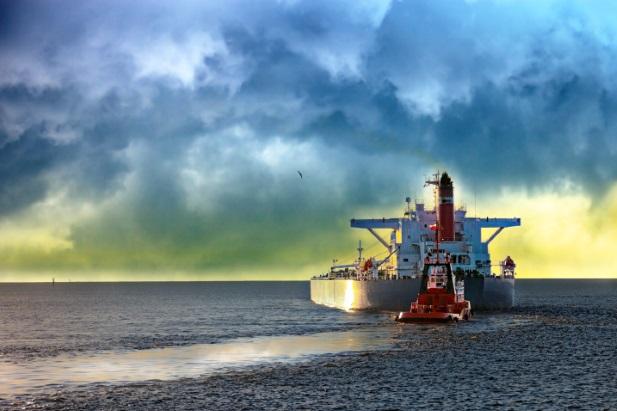CBS Maritime Researchers Publish Articles Documenting Fundamental Challenges to the Shipping Industry

Photo: Iris/Scanpix
The papers report on shipping and climate research that has been built up at CBS over the past three years and is an ever more important focus area for CBS Maritime. Recently CBS Maritime researchers published international, peer reviewed papers on different aspects of energy efficiency and the climate challenge to shipping in Journal of Cleaner Production, Global Environmental Change and Research in Transportation Business and Management.
The first paper, by Jane Lister (University of British Columbia) and René Taudal Poulsen (Copenhagen Business School) and Stefano Ponte (Copenhagen Business School) documents how international shipping is lagging behind onshore industries in terms of its environmental protection standards. Drawing on original empirical evidence and archival data, the paper investigates why. Contributing to transnational governance theory, the authors find that conditions stalling regulatory progress include low environmental issue visibility, poor interest alignment, a broadening scope of environmental issues, and growing regulatory fragmentation and uncertainty. The paper concludes that United Nation’s International Maritime Organization holds a potential to orchestrate emerging private ‘green shipping’ initiatives to achieve better ecological outcomes in shipping.
The second paper by René Taudal Poulsen (Copenhagen Business School) and Hannes Johnson (Chalmers University of Technology) documents that a major part of the world fleet of more than 47,000 merchant ships operates under conditions that hamper energy efficiency and efforts to cut CO2 emissions. Valid and reliable data sets on ships’ energy consumption are often missing in shipping markets and within shipping organizations, leading to the non-implementation of cost-effective energy efficiency measures. The study shows how the logic of good energy management conflicts with common business practices in shipping companies. The authors conclude that policy makers or other third parties could mandate best practice for energy management in shipping. This would reduce the industry’s fuel costs as well as the environmental footprint.
The third paper by René Taudal Poulsen (Copenhagen Business School) and Henrik Sornn-Friese (Copenhagen Business School) identifies energy efficiency gaps in ship operations, and explores their causes. Lack of information on energy efficiency, lack of energy training at sea and onshore and lack of time to produce and provide reliable energy efficiency information cause energy efficiency gaps. The paper brings together the energy efficiency and ship management literatures, demonstrating how ship management models influence energy efficiency in ship operations. Achieving energy efficiency in ship operations is particularly challenging under third party ship management. Finally, the paper discusses management implications for shipping companies, which outsource ship management to third parties.
References
Jane Lister, René Taudal Poulsen and Stefano Ponte, 2015: “Orchestrating transnational environmental governance in maritime shipping” pp. 184-185, in Global Environmental Change 34 (September), 185-195, DOI: http://dx.doi.org/10.1016/j.gloenvcha.2015.06.011
René Taudal Poulsen and Hannes Johnson, 2015. “The logic of business vs. the logic of energy management practice: understanding the choices and effects of energy consumption monitoring systems in shipping companies”, Journal of Cleaner Production, DOI: http://dx.doi.org/10.1016/j.jclepro.2015.08.032
René Taudal Poulsen and Henrik Sornn-Friese, 2015: “Achieving energy efficient ship operations under third party management: How do ship management models influence energy efficiency? Research in Transportation Business and Management, DOI: http://dx.doi.org/10.1016/j.rtbm.2015.10.001